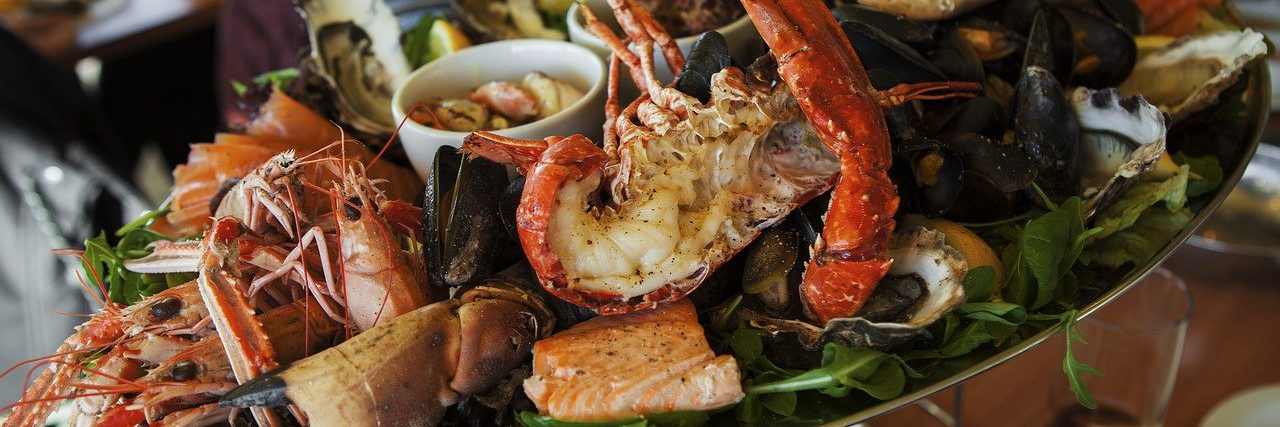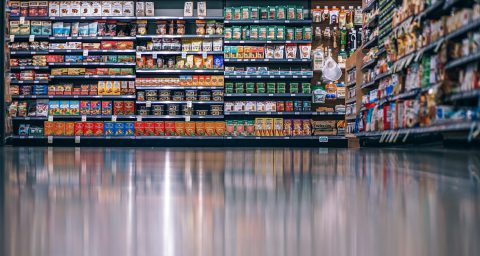Increasingly our diets are becoming less diverse in the types of meat, vegetables, fruit and cereals we eat – and seafood is no exception to this trend. In the UK, seafood consumption is largely dominated by the ‘big five’: cod, haddock, tuna, salmon and prawns. There is little debate that, around the world, people are converging towards similar diets and similar food supplies. This trend often puts pressure on the same crops, products and a limited range of production systems. While these limited options simplify our day-to-day choices, they also complicate the resilience of our food system.
The food system comprises every step of the journey taken by the food we eat – from farm and sea to fork, to waste and food disposal. It could be best described as a massive interconnected network of products, processes and people that link to ensure we have food on our plates.
Diversity and adaptability
Natural systems are equally complex and interconnected, with inherent diversity and an ability to respond to change by moving from one state of equilibrium to another. This resilience allows nature to ‘take a hit’ and recover after a shock, such as a natural disaster, or to re-orient itself when things change slowly over time, for example with natural glacial periods. This is only possible because most species fit within and interact as a part of their ecosystem; the huge diversity of species occupies every single niche and uses a variety of strategies to access a range of limited resources. Within each species there is also natural variability, which means that although a part of a population might perish in tougher times or when resources are scarce, the chances are those individuals which are a bit different and less susceptible to such shocks might survive. Unlike in nature, our food system often lacks the benefits of such intricate design as well as the resilience that millions of years of evolution have bestowed upon natural systems.

Fisheries and aquaculture are examples of parts of the food system that from very early on developed in a state of abundance of resources. There was little pressure to function in an integrated and sustainable way, to be highly adaptable or prepared to respond quickly to changes or when resources become under high pressure. This situation can lead to a higher vulnerability to the stresses and shocks incurred when conditions change unexpectedly, such as problems with fish stocks or shifts to external markets, which in turn can affect how the system functions and what it delivers – in this case jeopardising the supply of healthy and sustainably-sourced seafood. On the other hand, this vulnerability provides an opportunity to improve the capability of our food system to become more resilient and sustainable, to thrive in a world of constant change and redefine itself.
Aquaculture has a key role to play in a food system capable of providing the UK with a stable supply of healthy food. It has the potential to ensure that available and accessible seafood is produced in an environmentally sustainable way and from a socio-economically thriving seafood sector, contributing to healthier diets. Understanding the benefits of diversifying aquaculture production systems, exploring new ways for companies to operate and collaborate, informing how policy can better serve environmental sustainability and the production of a wider range of seafood products, and improving consumer choice of healthy and sustainable seafood are just a few of the ways to improve the resilience of seafood production in the UK being explored by the Diverseafood research project.
One of our focus areas in Diverseafood is the potential to develop integrated farms (IMTA), where fish, seaweed and shellfish are produced using shared resources. Notably we are investigating how business models, operation, regulation and market performance of these products need to evolve if these systems are to become a reality in the UK. While these transitions could result in higher environmental sustainability and more benefits to public health, diversification of production and consumption requires an acceptance of new ways to operate, new products and new mindsets. Would you be willing to include seaweed in your diet? How do you feel about having an integrated farm on your doorstep? Are we ready to favour production systems that are carbon neutral or even negative? How much more would most of us be willing to pay for higher sustainability or better nutrition?
A call for commitment
These are complicated trade-offs. However, if we are to evolve towards a food system with resilience, health and sustainability at its core, a collective reflection and commitment is needed to start taking even minor steps towards a shared vision.
This entails making efforts to support the development of the seafood supply and value chain (i.e. all the components of the seafood system) as part of a functioning system built on diversity; of diets, products, businesses and operations, and to recognise the value of existing environmental and social resources. Beyond that, it’s likely that difficult decisions will need to be taken so that our food system can better respond to the UK’s evolving societal needs. As in nature, each change sees the system adopting a new equilibrium, but when it comes to food systems, it is up to society to define which changes are needed and are acceptable and for research to open the door to new paradigms.
About the author
Dr Sofia C. Franco is a Lecturer in Aquaculture Governance and Innovation at the Scottish Association for Marine Science. She is the PI of Diverseafood, one of 13 projects funded through the Global Food Security’s ‘Resilience of the UK Food System in a Global Context’ Programme with support from BBSRC, ESRC, NERC and Scottish Government. For more about researchers who are working to meet the challenge of providing the world’s growing population with access to safe, affordable and nutritious food, read about the programme here.



